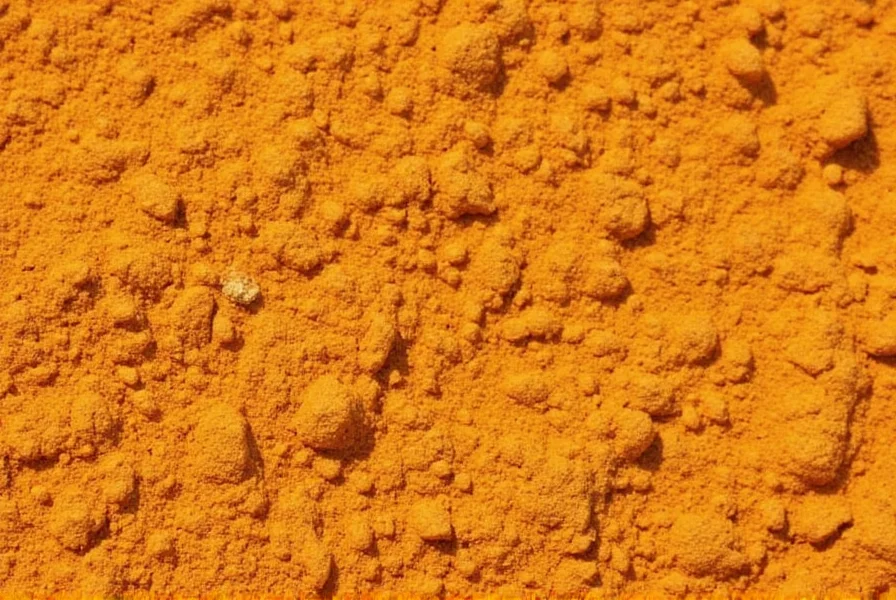Curcumin, the active compound in turmeric, has gained popularity for its potential anti-inflammatory and antioxidant benefits. While the golden spice is safe in food quantities, concentrated curcumin supplements present different considerations. Understanding the potential side effects helps consumers make informed decisions about incorporating this supplement into their wellness routine.
Common Turmeric Curcumin Side Effects
Most side effects of curcumin occur at supplement doses rather than culinary use. Research indicates that doses below 8 grams daily are generally well-tolerated by most people, though individual responses vary significantly. The most frequently reported issues relate to digestion.
| Side Effect | Frequency | Typical Dosage Trigger |
|---|---|---|
| Digestive discomfort | Common (5-10% of users) | 500mg+ daily |
| Nausea | Moderate (3-7% of users) | 1000mg+ daily |
| Diarrhea | Moderate (4-8% of users) | 2000mg+ daily |
| Headache | Less common (2-5% of users) | 1500mg+ daily |
| Skin rash | Rare (1-2% of users) | Variable |
Serious Health Concerns with Curcumin Supplements
While rare, certain serious side effects warrant attention, particularly for individuals with pre-existing conditions or those taking specific medications. Understanding these potential risks represents crucial information for anyone considering curcumin supplement side effects beyond basic digestive issues.
Blood Thinning Effects
Curcumin may enhance the effects of blood-thinning medications like warfarin, increasing bleeding risk. A 2020 review in Nutrients noted that curcumin inhibits platelet aggregation, which explains the blood thinning effects of turmeric. Those scheduled for surgery should discontinue curcumin supplements at least two weeks beforehand.
Gallbladder Complications
Curcumin stimulates bile production, which can worsen symptoms for people with gallstones or bile duct obstruction. Research published in the European Journal of Drug Metabolism and Pharmacokinetics indicates this effect is dose-dependent, making it essential to consider how much turmeric is too much for those with gallbladder conditions.
Medication Interactions to Consider
Understanding potential interactions represents a critical aspect of is turmeric curcumin safe for individual health circumstances. Curcumin affects how the body processes certain medications through interactions with cytochrome P450 enzymes.
Diabetes Medication Interference
Curcumin may lower blood sugar levels, potentially causing hypoglycemia when combined with diabetes medications. Individuals monitoring blood glucose should discuss curcumin digestive side effects alongside potential blood sugar impacts with their healthcare provider.
Chemotherapy Considerations
While some studies suggest curcumin may enhance certain cancer treatments, it might interfere with others. The American Cancer Society recommends discussing all supplements with oncologists before combining with chemotherapy due to potential interactions.
Who Should Avoid Turmeric Curcumin Supplements
Certain populations face higher risks when considering curcumin supplementation. Identifying who should not take curcumin represents essential knowledge for safe usage.
- Pregnant and breastfeeding women: Limited research exists on high-dose curcumin during pregnancy; culinary amounts are generally considered safe
- People with bleeding disorders: Due to potential blood-thinning effects
- Those with iron deficiency: Curcumin may interfere with iron absorption at high doses
- Individuals before surgery: Should discontinue use at least two weeks pre-procedure
- People with hormone-sensitive conditions: Theoretical concerns exist about curcumin's potential estrogenic effects
Safe Usage Guidelines
Following evidence-based recommendations helps minimize the risk of adverse effects while potentially gaining benefits from curcumin supplementation.
Dosage Recommendations
Most clinical studies use doses between 500-2,000 mg of curcumin daily. Starting with lower doses (250-500 mg) and gradually increasing helps assess individual tolerance. Products containing piperine (black pepper extract) enhance absorption but may increase the likelihood of curcumin supplement side effects.
Timing and Food Considerations
Taking curcumin with food, particularly fatty meals, improves absorption and may reduce digestive side effects. Dividing daily doses (taking morning and evening) often improves tolerance compared to single large doses.
When to Consult a Healthcare Provider
Seek medical advice before starting curcumin supplements if you:
- Take prescription medications regularly
- Have a chronic health condition
- Experience persistent side effects
- Plan to take doses above 1,000 mg daily
- Have upcoming surgery
Healthcare providers can help determine whether the potential benefits outweigh risks based on individual health status and medication regimen. They can also help distinguish between normal supplement adjustment symptoms and concerning reactions requiring discontinuation.
Conclusion
Turmeric as a culinary spice remains safe for most people, but concentrated curcumin supplements require more careful consideration. While generally well-tolerated, understanding potential side effects and interactions represents essential knowledge for safe usage. The key to minimizing risks while potentially gaining benefits lies in appropriate dosing, awareness of personal health conditions, and consultation with healthcare professionals when necessary. As with any supplement, individual responses vary, making self-monitoring an important component of safe curcumin use.
Frequently Asked Questions
Can turmeric cause stomach problems?
Yes, high doses of curcumin supplements (typically above 1,000 mg daily) can cause digestive issues including nausea, diarrhea, and stomach upset in some people. These curcumin digestive side effects occur more frequently with supplements than culinary turmeric. Taking curcumin with food can help reduce these gastrointestinal symptoms.
Does turmeric interact with blood pressure medication?
Curcumin may enhance the effects of certain blood pressure medications, potentially causing blood pressure to drop too low. If you take medication for hypertension, consult your healthcare provider before starting curcumin supplements to discuss potential interactions and appropriate monitoring.
How long do turmeric side effects last?
Mild digestive side effects from turmeric supplements typically resolve within 24-48 hours after discontinuing use. If you experience persistent symptoms beyond this timeframe, consult a healthcare provider. Most people find that reducing the dosage or taking curcumin with food eliminates temporary side effects.
Is it safe to take turmeric every day?
Culinary turmeric is generally safe for daily consumption. For curcumin supplements, daily use appears safe for most people at doses up to 8 grams, though typical supplemental doses range from 500-2,000 mg daily. Long-term safety data is limited, so periodic breaks from supplementation may be prudent. Consult your healthcare provider about appropriate duration for your individual circumstances.











 浙公网安备
33010002000092号
浙公网安备
33010002000092号 浙B2-20120091-4
浙B2-20120091-4